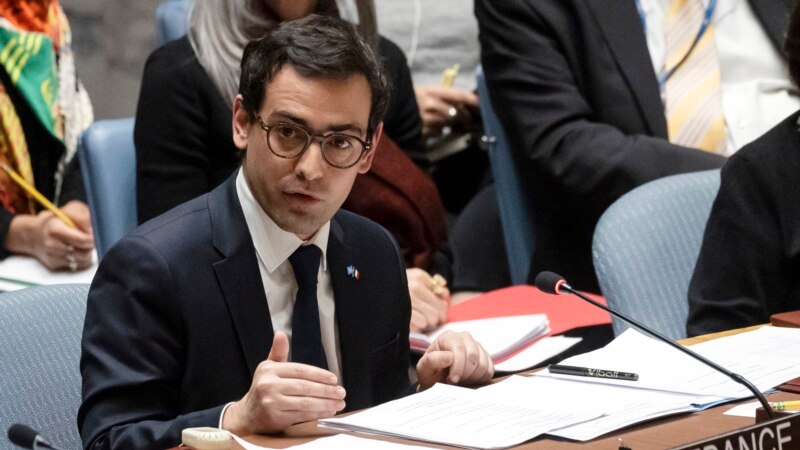France’s foreign minister travels to the Middle East on Saturday to test ideas about reviving an Israeli-Palestinian political process after the Gaza war as Europe tries to play a role in a conflict that has deeply divided the European Union.
“There will be a discussion with his regional counterparts, especially Israeli and Palestinian counterparts, to see how to restart a political perspective in the region,” Deputy foreign ministry spokesperson Christophe Lemoine told reporters in a news briefing.
He was referring to Foreign Minister Stephane Sejourne’s trip to Egypt, Jordan, Israel, the Palestinian Territories and Lebanon, where he will also continue French efforts to defuse tensions between Israel and Iran-backed Hezbollah in southern Lebanon.
European Union member states are divided on the Israeli-Palestinian conflict and their response has mostly been to try to ease the humanitarian situation in the enclave.
But with the U.S. administration largely backing Israel and entering an election period, there is a growing sentiment within the bloc that it has to use its relationship with Arab states to come up with a plan for when the moment comes.
The Gaza war was triggered by fighters from the Hamas militant group who stormed across the border fence into Israel on October 7, killing 1,200 people and capturing 253 hostages, according to Israeli tallies.
Since then, health authorities in Hamas-run Gaza say more than 27,000 Palestinians have been confirmed killed, thousands more wounded, the enclave left in ruins and many more displaced.
EU foreign policy chief Josep Borrell last month sent a discussion paper to the EU’s 27 member countries, suggesting a roadmap to peace in the broader Israeli-Palestinian conflict.
That was received cautiously. But French diplomats say Paris is looking to work with its main EU partners to narrow differences on the issue so that they can then work with Arab states to put a joint proposal together for when there is a proper ceasefire.
“This time we have to be ready. What’s happened is too serious and so in a way it presents us with an opportunity. We looked at the past. We didn’t deliver as Europeans,” said a French diplomatic source.

